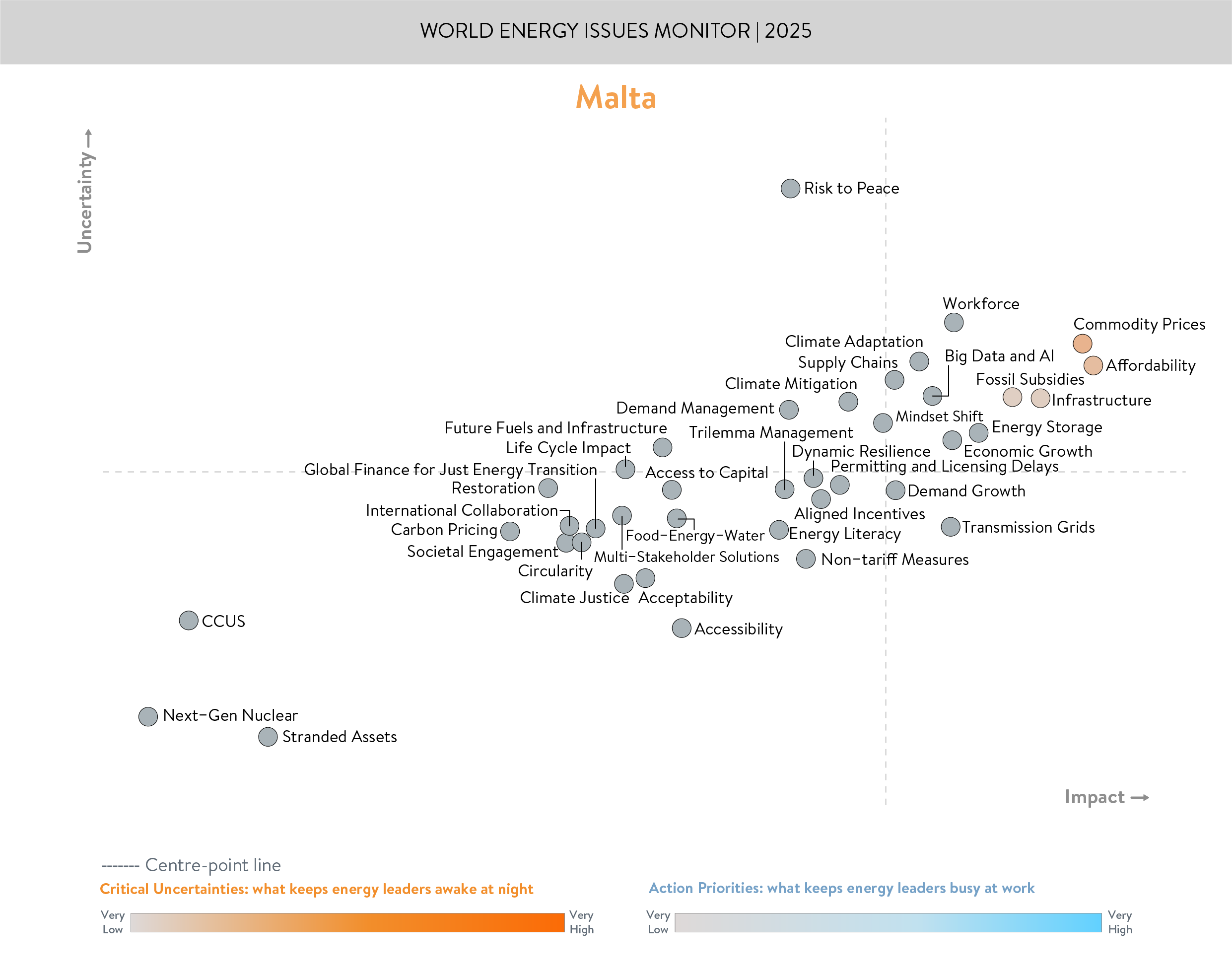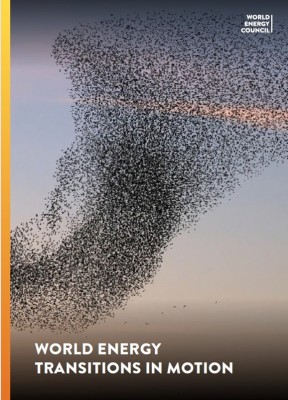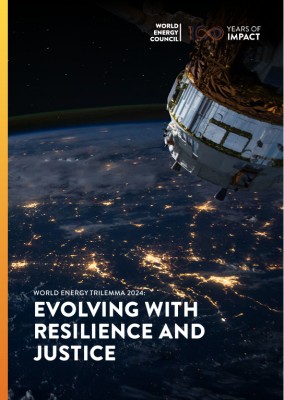Manuel Sapiano is Chair of the World Energy Council's Malta Member Committee and Chief Executive Officer of the Energy and Water Agency (EWA) within Malta’s Ministry for Energy, Enterprise and Sustainable Development. In this role, he coordinates a team of experts with responsibilities for the formulation, evaluation, monitoring and implementation of national policies concerning the use of energy and water in a sustainable manner and the formulation of plans to meet National and EU energy and water resources management targets.
Alexander Borg serves as an Officer in the International Unit of the CEO’s Office at the Energy and Water Agency (EWA). In addition to supporting the CEO’s Office in coordinating EWA’s membership of the WEC, Alexander is responsible for facilitating other international partnerships in the field of energy and water conservation on behalf of the Agency. These include EWA’s ongoing collaboration with our European and Mediterranean partners in initiatives aimed at promoting sustainable water management practices in the Mediterranean region.
Alexander graduated from the University of Malta in November 2023 with a Bachelor’s Degree in International Relations. He is currently studying for a Master’s Degree in International Affairs by research with King’s College London.

Energy in Malta

ENERGY ISSUES IN MOTION
The World Energy Issues Monitor has consistently identified commodity price volatility as a major concern for energy leaders across Europe and most global markets. This sentiment was also echoed by Malta’s Energy Issues Monitor map, identifying Commodity Prices as Malta’s top Critical Uncertainty. This result underlines current geopolitical events and changing international relations which significantly influence energy supply and prices.
Commodity prices are closely linked to affordability which has also ranked among Malta’s top Critical Uncertainties. Increasing energy price concerns are amplified by the island’s reliance on imported energy sources due to its insular geography and lack of conventional energy resources. Such condition exposes Malta to commodity price fluctuations and geopolitical instability. Discussions among the country’s energy leaders highlighted that although Malta’s interconnection with Italy has contributed to a more diverse energy portfolio, the nation’s dependence on a single interconnection source still exposes Malta to price volatility. Moreover, national energy leaders emphasized the strong link between commodity prices, affordability and risk to peace, recognising the significant impact potential spillover from current conflicts could have.
Although Malta’s Energy Issues Monitor map did not explicitly identify top action priorities, discussions among energy leaders have noted that the continued deployment of renewable energy technologies, including ambitious offshore wind plans to mitigate climatic impacts, as a key priority for Malta. Expanding indigenous renewable energy generation is expected to mitigate risks stemming from heightened energy price volatility while strengthening Malta’s energy independence. Furthermore, energy leaders have underscored the development of the transmission grid as a key priority for Malta, recognising the necessity for robust electricity infrastructure to accommodate increasing demands resulting from extreme climate events and economic growth.
FROM BLIND SPOTS TO BRIGHT SPOTS
Acknowledging the growth of energy demand driven by environmental and socio-economic factors, energy leaders expressed interest in the positioning of demand management on Malta’s Energy Issues map. Throughout discussions, they underscored the significance of demand management within Malta’s energy framework and its pivotal role in enhancing grid stability and reliability while managing increasing energy demands by reducing peak loads. In this context, energy leaders observed that the customer focused, and resource efficient characteristics of demand management, together with energy storage, could generate considerably more substantial impact than anticipated in Malta’s Issues Survey results.
Furthermore, national energy leaders have recognised access to capital as a significant enabler of the energy transition. Although its potential impact may be underrepresented in Malta’s Issues Monitor map, energy leaders noted that energy financing might not be a primary concern, thanks to the significant public financial assistance provided for most clean energy projects. National energy leaders concluded that the provision of financial assistance together with more streamlined permitting procedures, the latter also stemming from Malta’s geographical limitations, are a notable advantage in facilitating the clean energy transition projects.
Acknowledgements
Malta Member Committee
Downloads

World Energy Issues Monitor 2025 Country Commentary
Download PDF






